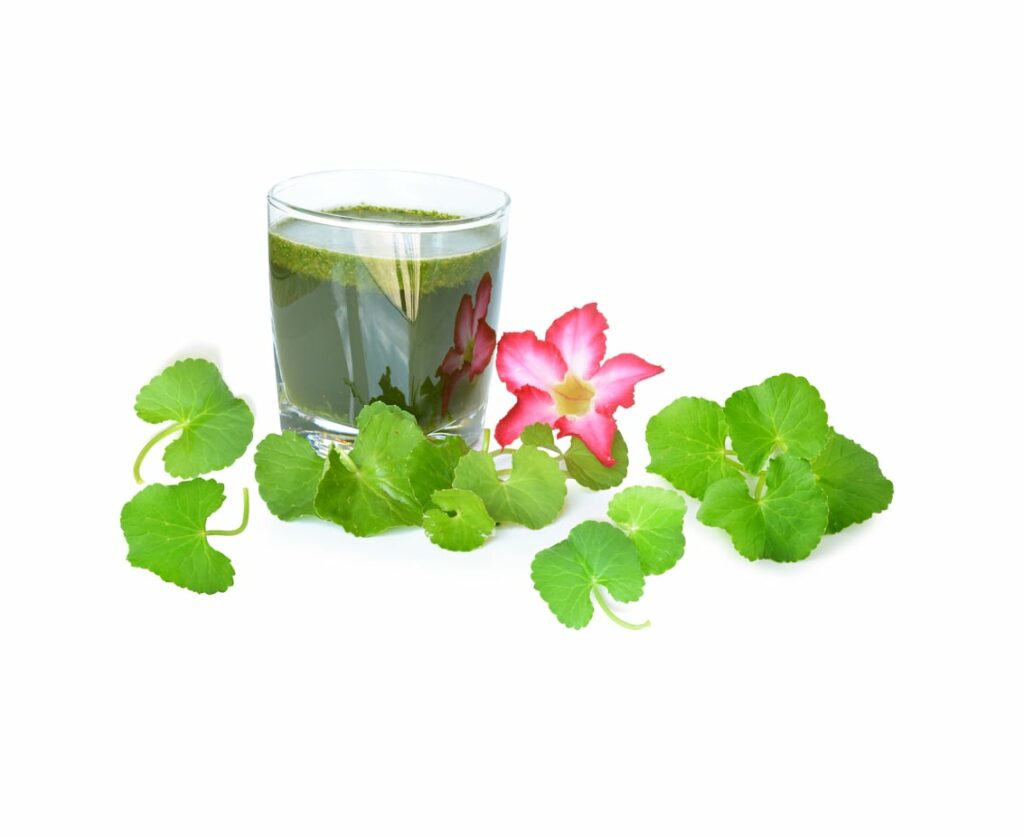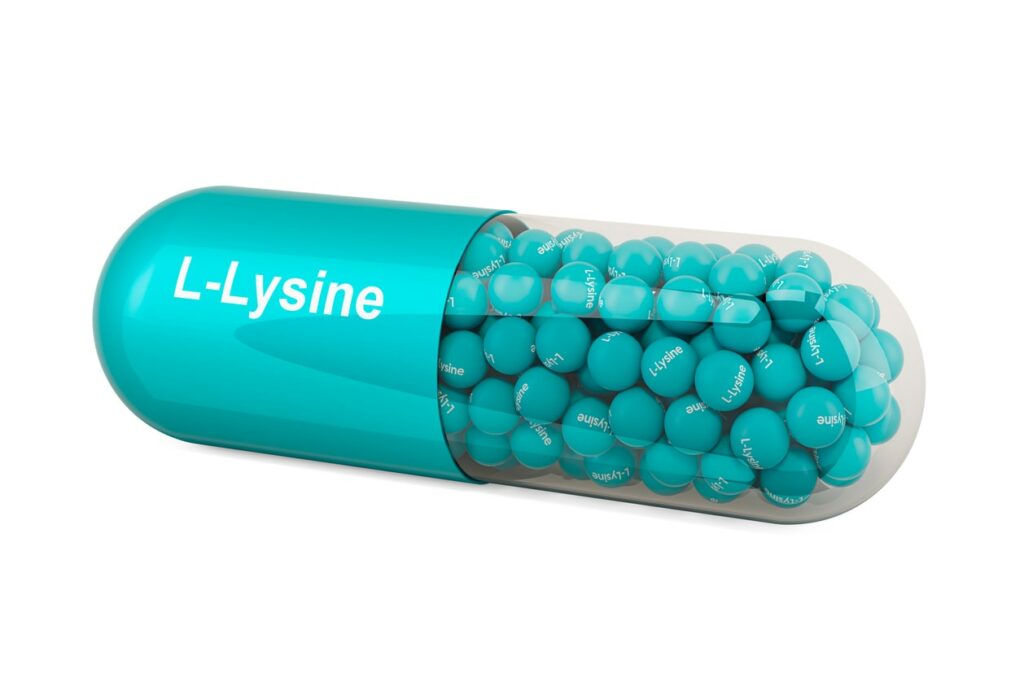Lysine is an amino acid that helps produce proteins in your body and has some surprising health benefits you may not have heard of.
Lysine is an essential amino acid, meaning your body cannot produce it, and you need to consume lysine in food or supplements to maintain healthy levels.
Lysine supplements are growing in popularity, but many people don’t know about their potential health benefits or how to incorporate natural lysine sources into their diet.
Like many other amino acids, lysine is a building block for protein and helps your body produce vital proteins to support various biological processes. But in addition to being an essential nutrient, lysine may have some surprising health benefits when taken as a supplement.
Many people supplement with lysine for athletic performance, cold sores, diabetes, and other health conditions, but there may not be enough scientific evidence to support these uses. To help you decide whether lysine supplements are right for you, we’ll explore this naturally-occurring amino acid’s effects and potential health benefits.
Table of Contents
What is a Lysine Supplement?

Lysine is an amino acid that works as a precursor for many proteins and natural compounds, notably carnitine, which helps transport fats to be burned for energy. Humans cannot produce lysine, so we must consume natural sources (or supplements) to maintain healthy levels of this amino acid.
Fortunately, lysine can be extracted and added to lysine supplements to provide an easy source of this essential amino acid in various forms, including pills, capsules, topical creams, and more. These supplements contain a concentrated dose of L-lysine – the biologically active form of lysine found in natural food sources that our bodies can process and are designed to increase our lysine levels quickly.
What Does a Lysine Supplement Do?

Like many other amino acids, lysine helps build muscle and collagen, promotes calcium absorption, and aids in creatinine production, indirectly supporting energy levels and exercise performance. Taking lysine in supplement form may not provide instant benefits in these areas, but it’s sure to help you maintain healthy lysine levels for general health.
As an essential amino acid, the effects of lysine come from its ability to support several bodily functions, including viral immunity and protein synthesis. Studies show that lysine deficiencies are linked to metabolism, immune response, and cell function issues, so taking lysine supplements is sure to treat health issues caused by a deficiency, but they also have benefits for otherwise healthy people.
Health Benefits of Lysine Supplements:
The human body needs lysine for healthy functioning, as it’s a crucial component of proteins that contributes to helping your tissue cells heal and grow. In addition to supporting your normal bodily functions, taking lysine in larger supplementary doses may provide other health benefits, including:
Protecting Against Cold Sores
Cold sores (or fever blisters) are small, uncomfortable sores that typically appear on the lips or corners of the mouth and are caused by infections or the Herpes Simplex Virus type 1 (HSV-1). Fortunately, lysine supplements can help stop HSV-1 from replicating and reduce the number and duration of cold sores if and when you have a breakout, especially when applied as a topical cream.
Helping with Stress Relief
Lysine may also help reduce anxiety, as one study found that it blocked receptors involved in stress responses and reduced levels of the stress hormone cortisol. If you suffer from high anxiety, lysine combined with stress management techniques can help to lower stress-induced anxiety and allow you to get on with your day.
RELATED: Read our article on top-rated stress relief supplements to learn more ways to manage your stress levels.
Improving Calcium Absorption
Taking lysine supplements increases calcium absorption and may also play a part in controlling where the calcium is transported, as it has been shown to prevent calcium buildup in blood vessels. This means that lysine may be especially useful for people at higher risk of osteoporosis, a disease characterized by low bone mass.
RELATED: Improve the effectiveness of calcium supplements with these tips on taking calcium supplements for best absorption.
Uses For Building Muscle
Lysine is vital for producing many proteins in the body and plays an important role in building and maintaining skeletal muscle tissue and supporting muscle growth. Low levels of lysine are linked to slowed protein synthesis, so you need to maintain healthy levels of lysine to build muscle.
RELATED: These 7 supplements will help you build muscle and strength.
Promote Wound Healing
Lysine can improve wound healing by promoting collagen formation, a protein that helps heal physical damage and acts as a binding agent to seal and heal wounds. In several animal studies, lysine supplements significantly improved blood flow and overall healing, so they may help you recover more quickly from injuries.
Food Sources of Lysine

Lysine is naturally found in foods high in protein (especially meat and dairy products) and some plant foods, though typically in smaller amounts. Here are some great natural sources of lysine for people looking to increase their intake without relying on lysine supplements:
- Meat: Chicken, beef, and lamb
- Seafood: Prawns, oysters, and salmon
- Dairy: Milk, yoghurt, and cheese
- Vegetables: Peppers, potatoes, and leeks
- Fruits: Apricots, pears, and avocados
- Legumes: Chickpeas, kidneys, and soybeans
- Nuts and Seeds: Cashews, pumpkin seeds, and macadamias
- Cereals: Buckwheat, quinoa, and amaranth
Summary
Lysine is an essential amino acid that supports a wide range of essential biological functions and offers some surprising health benefits when taken as a supplement. Most people get enough lysine from their diets, so while lysine supplements may not be medically necessary, they can help you deal with stress, cold sores, healing, and more.
Lysine is well tolerated and has few known side effects when used as a supplement, though it may increase your risk of gallstones, hypercalcemia, and kidney disease in especially high doses. Therefore, we recommend you ask your doctor is lysine is right for you before starting a new supplement routine.





